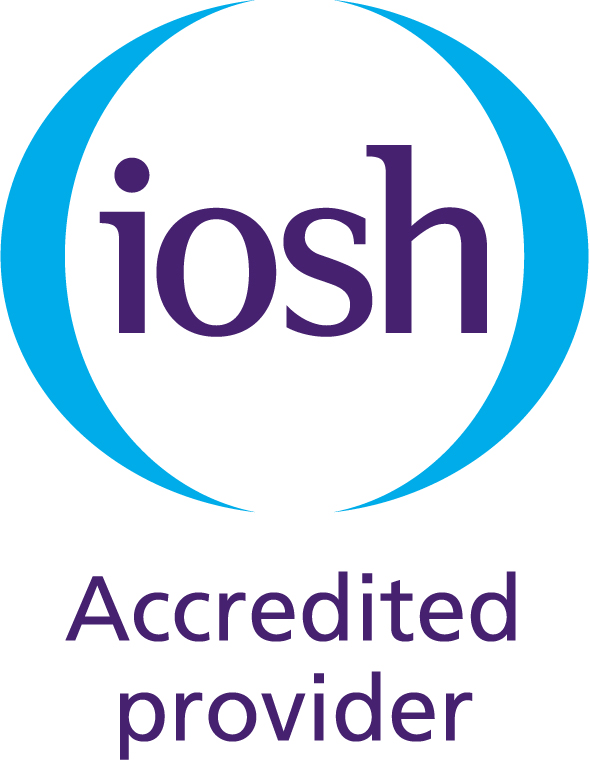
Safety, Health and Environment
Full-time
Part-time
One year
Three year
September 2026
In a nutshell
In our increasingly busy world, health and safety professionals can be responsible for mitigating environmental forces alongside preventing accidents and work-related ill-health. Build the skills and knowledge to rise to this challenge with our MSc Safety, Health and Environment postgraduate degree.
Designed to both meet the continuing professional development needs of established industry personnel, and provide a vocational qualification for those seeking a career in Safety, Health and Environment (SHE) practice, this course provides interdisciplinary postgraduate level knowledge and skill progression. The curriculum reflects the growing trend of organisations combining environmental protection and health and safety functions.
The course is accredited by both the Institute of Occupational Safety and Health (IOSH) and Institute of Sustainability and Environmental Professionals (ISEP) , as meeting the academic requirements for graduate membership. Graduates can also fast track to PISEP (Practitioner Status) once they complete a work-based competence assessment.
Salford ranks 8th on People & Planet's University League
People & Planet is the largest student network in the UK campaigning for social and environmental justice. They envision a future in which spiralling inequality, instability, climate crisis and resource depletion are reversed, and a world in which the balance of power in society has fundamentally shifted to an equal world that benefits all of us. University of Salford scored 71.0% and ranked 8th in the University League, with our highest scores in Managing Carbon, Staff and Student Engagement and Education for Sustainable Development.
International applicant? Please check international intakes for the latest information and application dates.
Start your MSc Safety, Health and Environment study journey
Register for our next Open Day where you can learn more about the course, tour our impressive campus and meet the tutors
You will:
- Broaden your knowledge, as you learn aspects of both environmental and occupational health
- Develop a skill set relevant to modern Safety, Health and Environment (SHE) practice
- Learn how to undertake health, safety and environmental audits against a background of sustainability
students accepted
Course accreditations


This is for you if...
You are a current safety, health and environmental practitioner, risk manager or enforcement officer wanting to cement or develop your knowledge for career progression
You are a graduate or professional looking to gain knowledge and skills to prepare for a move into a safety, health and environment-based career
You are actively concerned about environmental protection and health, and want to build knowledge to apply in your work environment or area of research.
All about the course
Course delivery
Our MSc Safety, Health and Environment postgraduate course is delivered through a range of industry-focused modules. The 180-credit MSc award comprises six credit-bearing taught modules, plus a 60-credit research-based dissertation project.
Flexibility is at the heart of our learning approach. You can choose to study this postgraduate course full-time or part-time on campus:
- as a full-time student, you will complete eight 15-credit taught modules across the trimesters one and two on campus two. You will complete a 60-credit research-based dissertation project during a third trimester
- as a part-time student, you will complete eight 15-credit taught modules across trimesters spread over two years. You will complete a 60-credit research-based dissertation project during a third year of study
The course timetable is designed to allow students with other commitments to structure their week around teaching sessions.
Learning experience
During your studies, you will engage with issues drawn from law, economics and the social and physical sciences which are relevant to the theory and practice of environmental regulation and occupational health. You will assess existing and emerging challenges, and explore contemporary management, technological and regulatory systems that are designed to reduce environmental risks.
The course curriculum is designed to help you build professional practice knowledge alongside postgraduate skills, including research design and delivery. During your studies, you will look at ‘big issues’ in environmental science, consider ethics and bioethics and use critical thinking.
The course has a highly-practical focus with an emphasis on authentic, experimental problem-based learning. You will consider the relevant concepts in practice and apply them in different circumstances, helping you to develop confidence in managing rapid social, technological and organisational change.
Course modules are designed to help you develop specific topic knowledge alongside intellectual and analytical skills appropriate for contemporary health, safety and environment professionals. Topics covered include standards and auditing, occupational health and hygiene, risk regulation and safety conservation.
Learn more about the current course modules in the section below.
Read about Tony's experience studying MSc Safety, Health and Environment
Course team
The Safety, Health and Environment postgraduate course is delivered by an academic team with exceptional research experience and extensive professional connections.
Course leader: Rosie Anthony
Postgraduate Scholarship Skills
This module provides key skills and knowledge to pursue academic research at the postgraduate and professional level, looking at big issues in environmental sciences. The module also introduces ethics and bioethics and will aim to enhance students critical thinking.
Standards and Auditing
This module examines the relevance and relative merits of the different tools and approaches available to the business community in assessing and improving its health, safety, and environmental performance and addressing the sustainability agenda. You will explore through case study and field work the of the business community to the internal and external drivers of health, safety and environmental performance and corporate social responsibility. You will be trained to undertake audits and will have the opportunity to undertake audits of business processes through collaboration with business partners.
Occupational Health and Hygiene
This module will explore trends in occupational health and wellbeing at work. You will explore the nature and properties of workplace contaminants and mode of entry to the body; methods of assessment of workplace environmental hazards; design and analysis of exposure measurement surveys and the biopsychosocial model of illness and its relevance to prevalent work related illnesses. You will develop a detailed understanding of the intervention strategies which may be used to manage occupational health risks and to promote wellbeing.
Safety Conservation
This module explores of a selection of workplace risks (e.g. fire and human behaviour, L.E.V., work equipment) informed by contemporary and emergent risks. Emphasis is placed on the interrelationships between occupational health, safety and wellbeing and development of policies which contribute to the prevention of injury or loss. Site visits will allow you to contextualise theoretical concepts in the workplace.
Professional Practice
This module aims to enable you to design, plan and execute a programme of research through active enquiry and to undertake appropriate analysis of research results. You will have the opportunity to use research skills acquired in the applied context of ‘real world’ project work in a variety of professional settings and to develop the skills necessary for successful delivery of project outcomes. You will work as part of a team with an external organisation or company relevant to your degree discipline on a project defined by a client. The module provides you with opportunities to develop a range of skills and aptitudes including negotiation of project terms of reference, research design, data collection and analysis, professional communication, project management and professional networking.
Research Design and Delivery
This module will prepare you for your dissertation by enabling you to design, plan and execute a programme of research and to analyse research results appropriately. It will provide opportunities for you to acquire essential research skills relevant to your discipline in both a field and laboratory setting. The experience in applying these skills will be invaluable in planning and undertaking your dissertation.
Environmental Impact Assessment
This module examines and evaluates processes for investigating and mitigating the impacts of development in the context of environmental impact assessment and planning procedures. You will explore impact assessment policy, law and practice through case study research and practical applications in the field. You will have the opportunity to interact with environmental impact assessment professionals in developing and presenting a case study providing you with valuable insights into career prospects in this field.
Risk Regulation
This module examines risk based approaches to regulation. You will explore the role of law in the management of health, safety environment including the current English criminal law, the influence of social legislation and other EU and international influences. You will study the operation of the major statutes in the field, their interpretation and application, procedures and protocols for the collection of admissible evidence; regulatory authorities, criminal / administrative sanctions and sentencing guidelines.
Dissertation
This module aims to enable you to contribute to the body of knowledge in your area by devising and conducting an independent research project and through independent, self-motivated critical thinking, to develop as a reflective practitioner.
We take a flexible approach to our course delivery that promotes diversity and inclusivity and provides a blended learning experience, which will vary to meet specific programme requirements. This learning time includes formal lectures and interactive activities such as seminars, tutorials, practical sessions, laboratory and studio learning. Smaller classes may be used to support collaborative activities such as project and group work and presentations. A range of different assessments and feedback is offered to meet the needs of both our diverse student body and specific subject needs.
Our postgraduate taught courses are normally made up of 30 credit modules which are equal to 300 hours of learning time, or 15 credit modules which are equal to 150 hours of learning time. A Master’s degree typically comprises 180 credits, a PGDip 120 credits, and a PGCert 60 credits.
Please note that exact modules and content offered may vary in order to keep content current and, for courses that offer optional modules, may depend on the number of students selecting particular options. When accepting your offer of a place to study on a programme with optional modules, you should be aware that optional modules may not all run each year. Your tutor will be able to advise you as to the available options on or before the start of the programme. Whilst the University tries to ensure that you can undertake your preferred options, it cannot guarantee this.
School of Science, Engineering and Environment
Rising to the challenge of a changing world, our postgraduate courses are designed to shape the next generation of urbanists, scientists, engineers, consultants and industry leaders.
Shaped by industry and delivered by supportive programme teams, you can develop the skills to take your career potential further.
Industry collaboration and research
When you start this degree course with Salford, you are joining a community making a difference in industry, our local region and in our wider society.
Many of our academics and technicians who support your course also lead collaborative, interdisciplinary, high-impact work in a range of local and global environmental issues and challenges.
Discover how you are part of something bigger.
What about after uni?
EMPLOYMENT
This course provides a relevant vocational qualification for applicants seeking health, safety and environment-related employment. It is also designed to meet the continuing professional development needs of personnel in government, industry and the voluntary sector.
The skills you will develop will prepare you to take a lead role in the strategic development and implementation of policy initiatives. Today, you will find course alumni working in positions as environmental regulators, SHE managers, safety consultancy and training, in fields as diverse as facilities management, construction and demolition, utilities, the civil service and engineering.
FURTHER STUDY
You might also choose to take your subject interest further with postgraduate research. Our Ecosystems and Environment Research Centre is home to PhD and Research Master’s opportunities exploring a range of topics, from energy and food security to ecosystem services and environmental assessment.
Explore our Doctoral School to learn more about research training, support and opportunities.
Career Links
- We emphasise the development of professional skills and capabilities. You graduate employability is developed through project work with external clients and through opportunities to work on a specific business problem for the dissertation component.
- A key course feature is applied learning and input from visiting practitioners from industry. We regularly invite honorary visiting professors and external expert to enrich your learning experience and bring leading-edge practice.
- Our course team hold strong links with safety, health and environment professionals through Safety Groups UK, which organises seminars and provides you with networking opportunities with professionals from a similar background.
What you need to know
Applicant profile
The course is recommended for safety, health and environmental practitioners, risk managers and enforcement officers, who want to deepen their subject knowledge and enhance their career prospects. It is also suitable for applicants looking to develop skills in the field of safety, health and environment.
English language requirements
All of our courses are taught and assessed in English. If English is not your first language, you must meet our minimum English language entry requirements. An IELTS score of 6.0 (no element below 5.5) is proof of this, however we do accept a range of equivalent qualifications.
Read more about our English language requirements, including information about pathways that can help you gain entry on to our degree courses. If you do not have the English language requirements, you could take our Pre-Sessional English course.
International applications
Please check international intakes for the latest information and application dates.
Course accreditation
This course is accredited by both the Institute of Occupational Safety and Health (IOSH) and Institute of Sustainability and Environmental Professionals (ISEP), as meeting the academic requirements for Graduate Membership. If you successfully complete the course, you automatically qualify for GradIEMA professional status. You can also fast track to PISEP (Practitioner Status) once they complete a work-based competence assessment.
Undergraduate degree
Applicants require at least a UK lower second class honours degree (2:2) or equivalent in any subject.
Applicants must also fulfil the IOSH entry requirements which require a basic knowledge of Occupational Safety and Health. Applicants without this knowledge are required to engage with online support materials provided as part of the course.
International student entry requirements
We accept qualifications from all around the world. Find your country to see a full list of entry requirements.
Accreditation of Prior Learning (APL)
We welcome applications from students who may not have formal/traditional entry criteria but who have relevant experience or the ability to pursue the course successfully.
The Accreditation of Prior Learning (APL) process could help you to make your work and life experience count. The APL process can be used for entry onto courses or to give you exemptions from parts of your course.
Two forms of APL may be used for entry: the Accreditation of Prior Certificated Learning (APCL) or the Accreditation of Prior Experiential Learning (APEL).
For more information or enquires about this scheme, please contact: admissionssee-pgt@salford.ac.uk
How much?
For students beginning their studies in January 2026, please see fees for 2025/26.
| Type of study | Year | Fees |
|---|---|---|
| Full-time home | 2025/26 | £10,350 per year |
| Full-time international | 2025/26 | £17,000 per year |
| Full-time home | 2026/27 | £10,620 per year |
| Full-time international | 2026/27 | £17,520 per year |
| Part-time | 2026/27 | Calculated on a pro rata basis |
Additional costs
Field courses and trip costs are covered by the University. You will not be charged for field (day) trips, but you are expected to provide your own refreshments.
You should consider further costs which may include books, stationery, printing, binding and general subsistence on trips and visits.
International student scholarships
If you are a high-achieving international student, you may be eligible for one of our scholarships. Learn more about our latest international scholarships.



